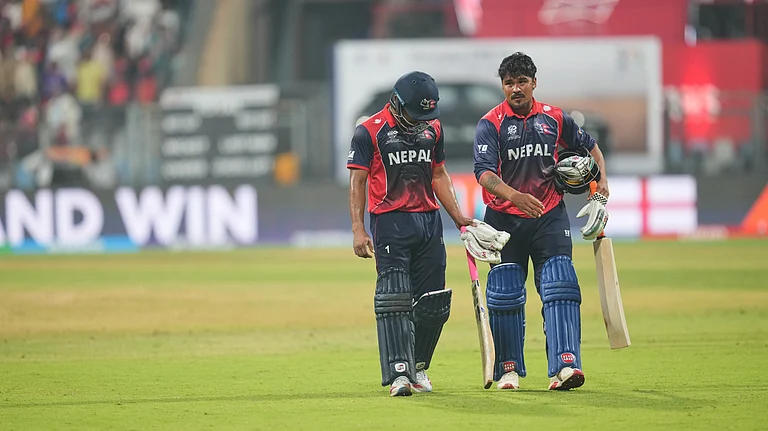CALL it a historical anomaly. Unlike the developed world, where cellular services emerged five to six years after paging, in India, both have been launched simultaneously. And faced with the state-of-the-art, high-profile cellphones, are Indian paging operators feeling a wee bit like the poor cousin? Whatever the answer to that, paging operators have teamed up to create a distinct identity for their service and spread the good alphanumeric word.
At first sight, cellular phones appear to hold a few clear aces. One, the concept is easier to understand than pagers. While paging means interaction with a phone operator and one-way communication, the cellular is simply the mobile extension of your traditional phone. Two, cell-phones spell STATUS. Three, with operators heavily subsidising the price of service and equipment, cellphone affordability is on the rise.
"Yes, cell phones do seem to have taken a big bite and the glamour out of paging," says Rajiv Agarwal, joint managing director of Modi Korea Telecom. "But the good news is that the paging industry has got together to ward off any shadow that the cellular industry may have cast on its prospects." Operators have formed the Indian Paging Service Providers' Association (IPSA). IPSA aims to provide a common platform for interface with the Government on policy and tactical issues, educate consumers, and enable industry to transcend unhealthy competition and focus on joint market development. The organisation, which has a Rs 10-crore advertising kitty for the year, is running a generic campaign on prime time TV, educating people on the need, convenience and utility of paging.
Dilip R. Mehta, president, RPG Paging Services, isn't too bothered about the cell phone, calling it "a red herring, a temporary phenomenon that will pass as the market matures". "The real threat," he says, "has been from within—price cutting, promotional wars and one-upmanship among rivals." With four service providers per metro, and 27 cities within the industry fold, paging has seen intense competition from day one. "From the consumers' point of view, it was fantastic, but for sellers, they bled themselves dry," says Mehta. "Various bizarre promotion schemes have been on offer: giving pagers free with TVs, cordless phones with pagers etc. A lot of energy and money was frittered away in the over enthusiasm to play the numbers game with subscribers," agrees Agarwal.
Wiser now, paging companies have called a truce. "The success of paging depends on cracking the right price-value code. The options are two—drop the prices and flood the market, or enhance the value proposition to make the price seem right," says Rahul Verghese, marketing manager, Motorola. An industry consensus has emerged on the second option. Manufacturers and service providers are now agreed on a multi-pronged long-term strategy to develop the market.
Consumer education: Ads explaining the basics, contests for schoolchildren, street plays called Kamaal Paging Ka (the miracle of paging), a touch-screen kiosk at Bangalore airport to enable travellers to know about paging, companies like Motorola are doing them all. "Only when you send a page, the simplicity and utility of it sinks in," says Verghese.
Highlighting intrinsic strengths: "A pager enables you to screen calls, prioritise them and formulate your reactions to situations and suggestions which could be of immense use in a business environment," says Agarwal. It does not disturb the environment, and its discreet nature could be useful in a social situation. "In countries like Singapore, Hong Kong and Japan, pagers are used in a big way for dating propositions by teenagers. Gives them privacy," points out Mehta. The biggest positive is the price. Rs 250 a month gives unlimited access, while on a cellular call it's Rs 16 per minute for outgoing and Rs 8 per minute for incoming calls. A pager also has a longer battery life than the cellphone.
Strategic positioning: Marketers are now pushing the pager as a device complementary to the cellphone. Based on the inherent strength of pagers, companies are now trying to place pagers as a complementary device supplementary to cellular phones rather than a rival. "Over 40 per cent of people who own cellular phones worldwide, also own pagers. In countries like Singapore and Hong Kong, the figure is as high as 70 per cent," informs Mehta. "Cellulars have made the need for mobile communication more upfront and visible, and experience in countries like the US is that the paging market has actually improved growth rates after the introduction of cellulars," says Verghese. Healthy co-existence is the target.
Value-additions: "The magic in paging will come from the quality of message inputs the pager owner receives and the value he perceives in that," says Verghese. Companies like RPG, Max-Page and Modi Page are providing selective information like sports news, share prices, and news headlines of the day to subscribers. "The pager is not meant for call-back messages only. It can fulfill the information needs of people in a variety of interesting ways like giving data on eateries, entertainment options, Sensex updates and so on, and we are working on these continuously," says Mehta.
Retail pull: So far pagers have been pushed through direct sales. But now service providers and manufacturers like Motorola are setting up retail showrooms where people can walk in and buy pagers the way they do fridges, mixers and TVs.
Some other measures that paging players are looking at are introduction of language pagers on a pilot basis, popularising numeric pagers that are more economical and simple, and providing customers a friendlier paging experience through better-trained sales and operating staff. "If paging can percolate to the social level, as a communication device for youngsters and housewives, it would be here to stay," avers Verghese. And paging corporates are doing everything to ensure this happens.


























